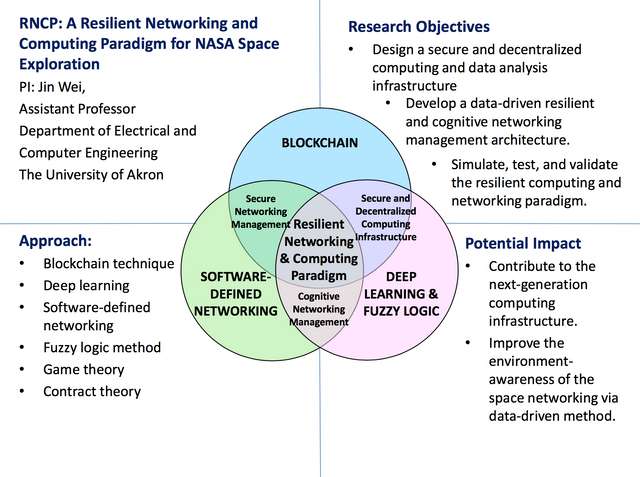Blockchain In Space - Space Debris

Putting together the things that interested me most. I thought I would start with my first ever Steem blog post with one on the intersection of Space and Blockchain technology. Since, and I'm glad its the case so I can write more, there seems to be more than one application for blockchain in space, this will be a multi-part series. In this one, as the title explains I'll be talking about how blockchain is looking to solve the problem of space debris. So let's explore what exactly this even looks like, what's being done, and where this could go. Down the rabbit hole.
The Debris Problem
To give everyone reading this a background, debris in space is a problem. From spatulas to entire blown up Chinese satellites there is a ton of stuff floating around in orbit around our planet. In fact, according to NASA, there are more than 500,000 pieces of "space junk", not floating but, speeding at 17,500 mph (28,163.52 kph). SO yea, it's kinda dangerous. As of now, it isn't necessarily obstructing/preventing any missions into space, however, if we continue down this path then it definitely will be. In addition, to obstructing our path to outer space, spacecraft and astronauts clearly have to watch out for speeding spatulas that could do some pretty bad damage if it hit them... to say the least.

The Solution
This is where Dr. Jin Wei Kocsis from the University of Akron in Ohio comes to save us all if his research comes to fruition. NASA has given Dr. Kocsis a $330,000 NASA grant supporting work developing autonomous spacecraft that won't need human intervention in order to make decisions, such as dodging space junk. Dr. Kocsis says, "In this project, the Ethereum Blockchain technology will be exploited to develop a decentralized, secure, and cognitive networking and computing infrastructure for deep space exploration…I hope to develop technology that can recognize environmental threats and avoid them, as well as complete a number of tasks automatically." The idea, somehow, is to use Smart Contract in order to make spacecraft "think" for themselves and automatically detect and dodge floating junk. The focus, essentially, is to take the problem of dealing with environmental hazards out of the hands of scientists, and engineers, but into that of the Smart Contract. Furthermore, it is believed that this system will also be able to apply a distributed computing strategy in order to deal with the processing power of spacecraft, which is a problem whenever you want to send massive amounts of high-dimensional data. To give you a sense, Juno the spacecraft that orbited around Jupiter had 4 GB of RAM, and the MacBook Pro that I'm writing on now has 8 GB of RAM.
The Impact
If this research comes to fruition it will have massive implications for NASA's space networks and then logically the private sector as well. This will spacecraft to handle and send us even more information than before, provide us with a data analysis infrastructure, which coupled with "deep learning techniques and fuzzy logic methods" will lead to smarter and more self-reliant spacecraft, and safer astronauts — in of course a secure fashion since we are talking blockchain here. Lastly, there is an expectation that this technology will also be the basis of next-generation space networks which are typically the most advanced, and then slowly transition into the commerical systems.
Final Note
By no means have I done enough research on this subject, and what would be awsome if I could get some help. If anyone has any idea how this application of blockchain would work, I would love nothing more than to find out. Please comment with any ideas, or links to places that could help me learn more. Otherwise, hope you enjoyed this article and until next time.
Congratulations @cmiljkovic! You received a personal award!
You can view your badges on your Steem Board and compare to others on the Steem Ranking
Vote for @Steemitboard as a witness to get one more award and increased upvotes!